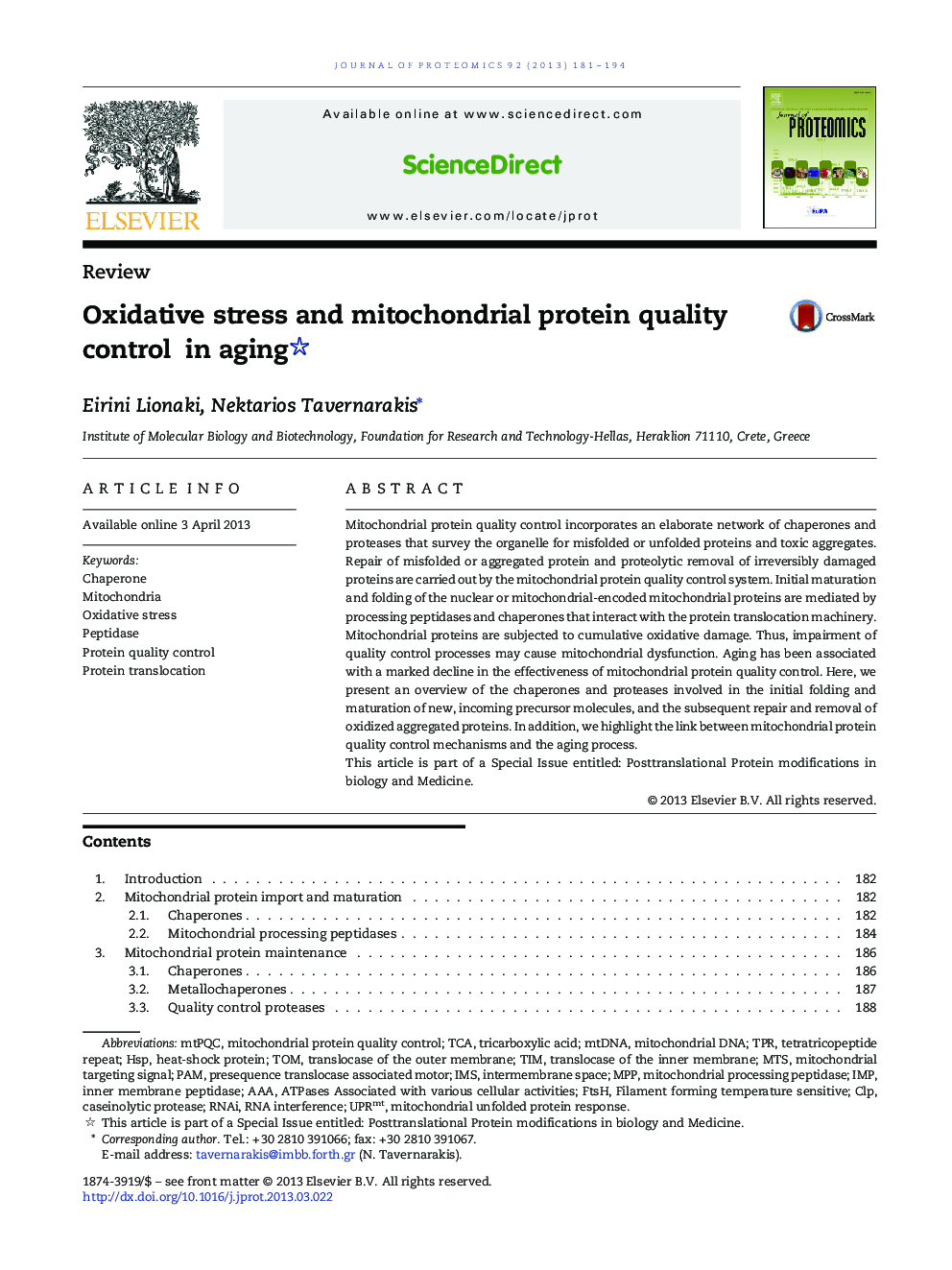| Article ID | Journal | Published Year | Pages | File Type |
|---|---|---|---|---|
| 1225486 | Journal of Proteomics | 2013 | 14 Pages |
•Oxidative stress challenges mitochondrial proteostasis.•Mitochondrial protein quality control (mtPQC) maintains mitochondrial proteostasis.•mtPQC comprises specific chaperones and proteases.•mtPQC surveys for damaged or aggregated mitochondrial proteins.•Disruption of mtPQC can lead to premature aging.
Mitochondrial protein quality control incorporates an elaborate network of chaperones and proteases that survey the organelle for misfolded or unfolded proteins and toxic aggregates. Repair of misfolded or aggregated protein and proteolytic removal of irreversibly damaged proteins are carried out by the mitochondrial protein quality control system. Initial maturation and folding of the nuclear or mitochondrial-encoded mitochondrial proteins are mediated by processing peptidases and chaperones that interact with the protein translocation machinery. Mitochondrial proteins are subjected to cumulative oxidative damage. Thus, impairment of quality control processes may cause mitochondrial dysfunction. Aging has been associated with a marked decline in the effectiveness of mitochondrial protein quality control. Here, we present an overview of the chaperones and proteases involved in the initial folding and maturation of new, incoming precursor molecules, and the subsequent repair and removal of oxidized aggregated proteins. In addition, we highlight the link between mitochondrial protein quality control mechanisms and the aging process.This article is part of a Special Issue entitled: Posttranslational Protein modifications in biology and Medicine.
Graphical abstractFigure optionsDownload full-size imageDownload high-quality image (90 K)Download as PowerPoint slide
